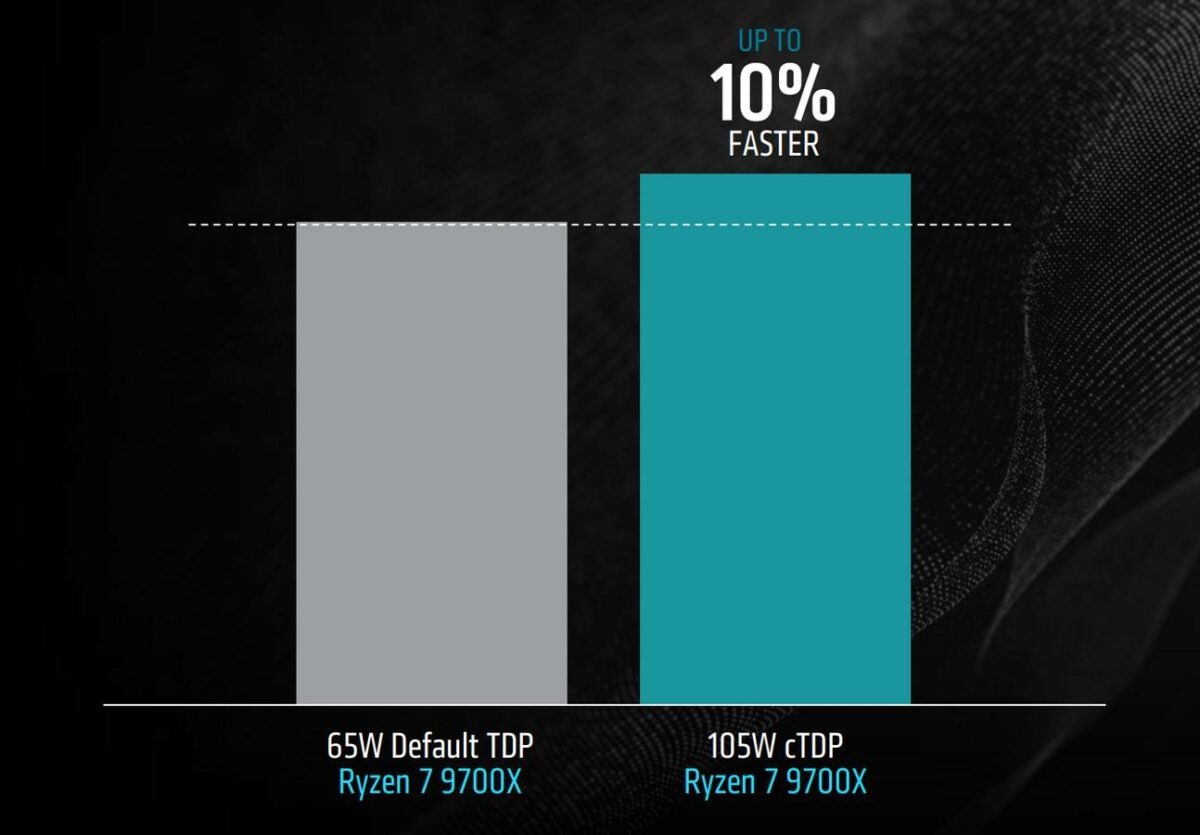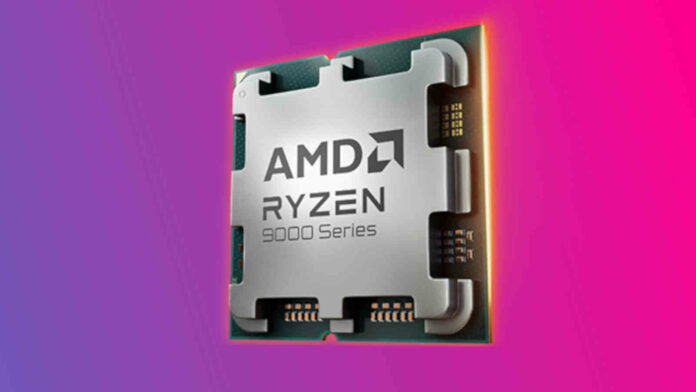AMD has published its AGESA 1.2.0.2 microcode for AM5 motherboards. This update features a new 105W mode for mid-range Ryzen 9000 Series chips, alongside some latency optimisations for dual-CCD processors.
Team Red has released a long-awaited BIOS update aimed at improving performance on all existing Ryzen 9000 CPUs. Available on Pro 600, Pro 665, A620, A620A, B650, B650E, X670, X670E, X870, and X870E boards, this update fixes the high latency caused by core-to-core communication on dual CCD Ryzen 9 CPUs. That said, AMD expects the highest gains to show in specific games such as Metro, Starfield, and Borderlands 3 instead of latency benchmarks.
AGESA 1.2.0.2 microcode has also debuted the new 105W TDP mode for the Ryzen 5 9600X and Ryzen 7 9700X. Initially launched with a 65W target, Ryzen 5 9600X and Ryzen 7 9700X were held back by their conservative power budget. In its quest for efficiency, AMD seemingly went too far, leaving valuable performance on the table as CPUs quickly hit a frequency ceiling due to energy starvation. This patch should remove these shackles, letting these chips spread their metaphorical legs thanks to a more reasonable 105W TDP.

Most importantly, this new mode will not void your warranty, so you can go ahead and claim the extra performance without fear. Note that the warranty itself isn’t the main point here. The thing to take from this is AMD’s confidence in its safety, indicated by the warranty coverage. If you want to unlock the full might of your mid-range Ryzen 9000 chips, head to your motherboard BIOS after updating it and enable the setting.
Additionally, AMD has announced official DDR5-8000 EXPO support. The brand claims this higher clock speed improves latency by 1ns to 2ns over DDR5-6000. Note that we are talking about EXPO, meaning everyone should be able to hit these clocks with a single click, unless you got unlucky with the silicon lottery.
An excellent update you must install, especially if you own a Ryzen 9000 chip. All that is left for AMD is to officially support CUDIMM DDR5 with its promised 10,000MT/s speed to reach parity in RAM speed with Intel chips.


